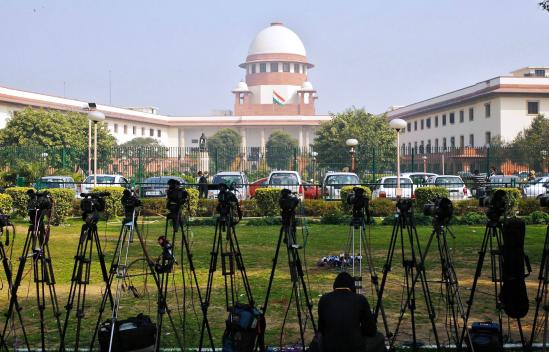Sakunjay Vyas
Published on: May, 17, 2022 at 08:28 IST
The Three-Judge Bench of Chief Justice of India NV Ramana, Justice AS Bopanna and Justice Hima Kohli of the Supreme Court upheld the judgment of the Kerala High Court, which had set aside the concurrent findings of conviction of the courts below and acquitted the Appellant under Section 304B of the Indian Penal Code while confirming his conviction under Section 498A of the IPC.
Contentions from the side of the Appellant:
1. That the suicide note and other statements made by the deceased cannot be relied upon by the Court for convicting him under Section 498A of the IPC as they do not fall within the scope of Section 32(1) of the Indian Evidence Act, 1872 (for short ‘the Evidence Act’).
2. That the evidence of PW3 (mother of the deceased) is contradictory and cannot be relied upon to convict the Appellant.
The learned counsel for the Appellant attempts to persuade this Court that there is no credible evidence to convict the Appellant under Section 498A of the IPC, and therefore, he should be acquitted of the same.
Respondent vehemently opposed Appellant’s contentions:
1. That there is sufficient evidence on record to make out a clear case for convicting the Appellant under Section 498A of the IPC.
The Apex Court, while referring to the Section 32 of the Evidence Act, stated that the phrase “cases in which the cause of that person’s death comes into question” is broader than merely referring only to cases where there is a charge of murder, suicide, or dowry death.
The Apex Court, while referring to the previously decided cases, stated that the Evidence Act had been used in some cases to admit statements even when the charges are different or civil action is being brought.
A clear indication of this is found in the second part of Section 32(1) of the Evidence Act, which states that such statements are relevant “no matter what the nature of the proceeding is in which the cause of his death is being considered”.
“…There have been instances where Courts have used Section 32(1) of the Evidence Act to admit statements in a case where the charge is of a different nature or even in a civil action.”
“This is abundantly clear from the second part of Section 32(1) of the Evidence Act, which specifies that such statements are relevant “whatever may be the nature of the proceeding in which the cause of his death comes into question”.” the Court said.
That based on the wording of Section 32(1) of the Evidence Act, it appears that the test for admissibility for the evidence under the said section is not that the evidence should directly relate to one of the charges alleging death for the individual or that the charge cannot be proven.
That it appears the test is that the circumstances of the transaction relating to the death must become a part of the ‘circumstances of the case’, regardless of the nature of the proceeding.
“…The wordings of Section 32(1) of the Evidence Act, it appears that the test for admissibility under the said section is not that the evidence to be admitted should directly relate to a charge pertaining to the death of the individual, or that the charge relating to death could not be proved.”
“Rather, the test appears to be that the cause of death must come into question in that case, regardless of the nature of the proceeding, and that the purpose for which such evidence is being sought to be admitted should be a part of the ‘circumstances of the transaction’ relating to the death.”, the Court said.
The Apex Court, while relying on previously decided cases (Sharad Birdhichand Sarda v. the State of Maharashtra, (1984) 4 SCC 116, Pakala Narayana Swami v. King-Emperor, AIR 1939 PC 47), arrived at these conclusions:
1. In some circumstances, the evidence of a deceased wife concerning cruelty could be admissible in a trial for a charge under Section 498A of the IPC under Section 32(1) of the Evidence Act. There are, however, certain necessary pre¬conditions that must be met before the evidence is admitted.
2. The first condition is that her cause of death must come into question in the matter. This would include, for instance, cases where along with the charge under Section 498A of the IPC, the prosecution has also charged the accused under Sections 302, 306 or 304B of the IPC. It must be noted, however, that as long as the cause of her death has come into question, whether the charge relating to death is proved or not is immaterial with respect to admissibility.
3. The second condition is that the prosecution will have to show that the evidence that is sought to be admitted with respect to Section 498A of the IPC must also relate to the circumstances of the transaction of the death. How far back the evidence can be, and how connected the evidence is to the cause of death of the deceased would necessarily depend on the facts and circumstances of each case. No specific straitjacket formula or rule can be given with respect to this.
As a result, the Apex Court upheld the judgment of the Kerala High Court by stating that it is not necessary in this case to undertake the exercise to determine whether the statement of the deceased can be admitted under Section 32(1) of the Evidence Act, as this appeal can be decided even without considering this aspect, as the other evidence on record clearly proves the Appellant’s guilt beyond a reasonable doubt. Answering the second issue also against the accused, the bench dismissed the appeal.

